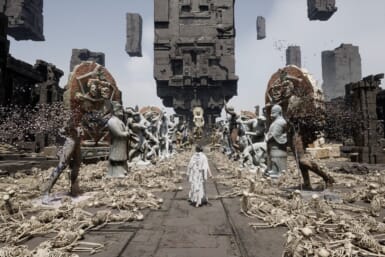A small town in Hokkaido didn’t seem well pleased with best-selling Japanese novelist Haruki Murakami’s latest work, saying his depiction of the town’s residents as perpetual smokers who throw lit cigarettes out the car windows was far from truth.
In the 24-page short story “Drive my car—men without women,” Murakami depicts a 24-year-old driver who hails from the real-life town of Nakatonbetsu as she flicks a lit cigarette out the car window.
This elicited a reflection from a widowed middle-age actor riding the car, who thinks to himself, “Probably this is something everyone in Nakatonbetsu commonly does.”
But residents of Nakatonbetsu, a remote mountain town with a population of 1,900, were not amused with the portrayal. The town assembly of Nakatonbestu says it will demand an explanation from Bungeishunju, the monthly magazine that published the story.
“In early spring, the town people gather of their own will in a clean-up operation to collect litter on roads,” Shuichi Takai, head of the assembly secretariat, told AFP.
“We also work hard to prevent wildfires as 90 percent of our town is covered with mountain forests. It is never a town where people litter with cigarettes every day,” he added.
“We want to know why the name of a real town had to be used like that.”
Bungeishunju said it had no comment and is yet to receive any inquiry from the town.
Murakami is a surrealist author whose works have been translated into about 40 languages. His latest book, Shikisai wo Motanai Tazakii Tsukuru to Kare no Junrei no Toshi (Colourless Tsukuru Tazaki and His Years of Pilgrimage) became the best-selling novel of 2013 after its April release.
He has been tipped as a future Nobel Literature laureate.
By Maesie Bertumen
Image: Sebra / Shutterstock.com









